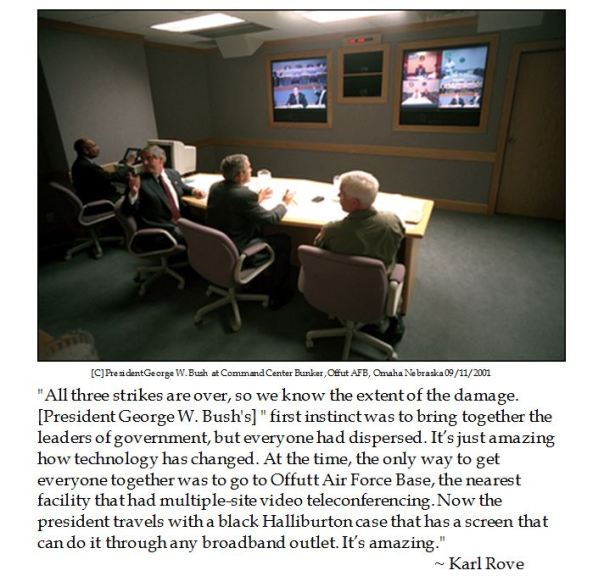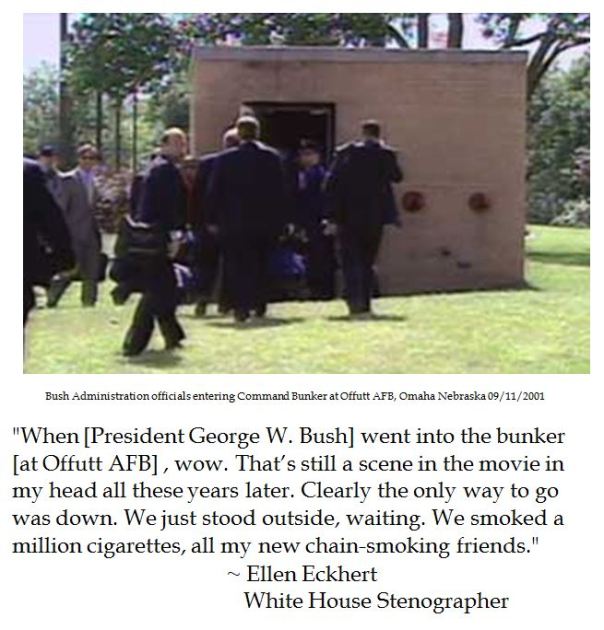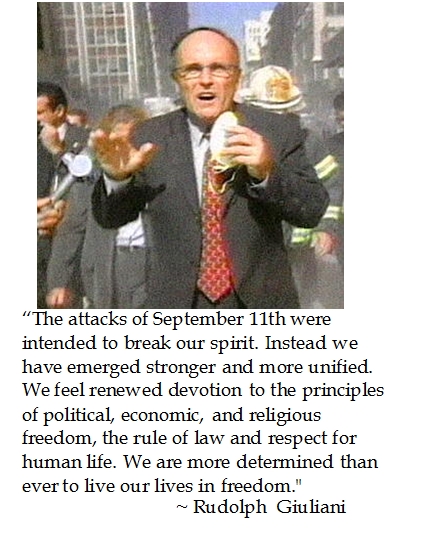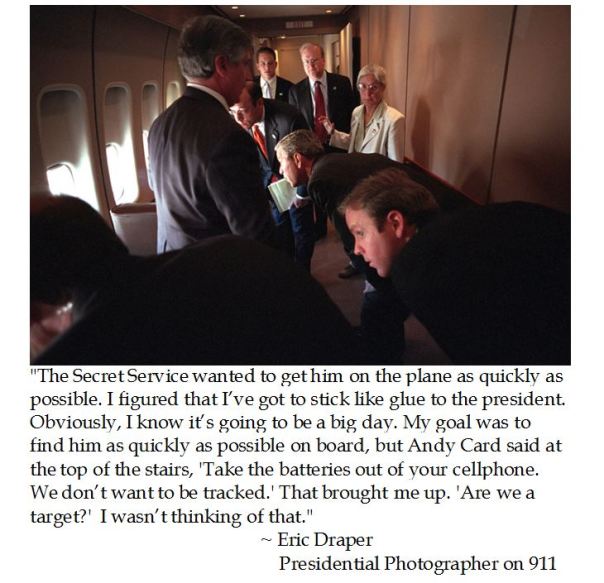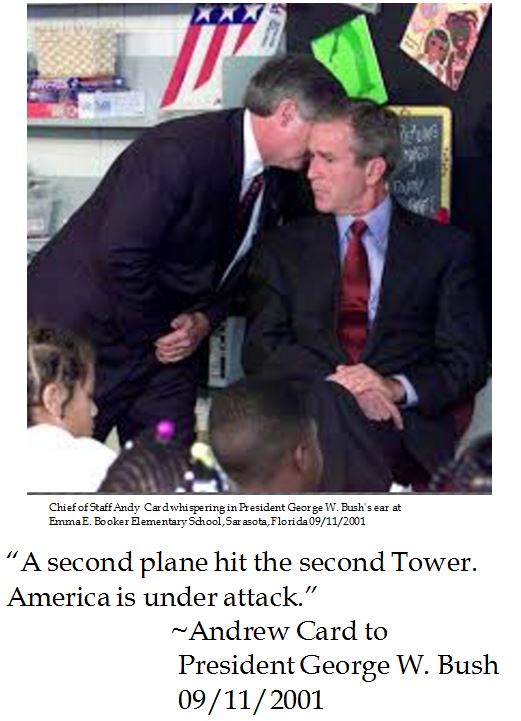Presidential debates are not like Oxford Union style debates, which can be scored on points and form. Often, the policy points do not matter. What often is the take away from a presidential debate is a zinger (usually pre-planned) or some canned ham (scripted witticism). Occasionally, the demeanor or appearance of a participant is what is long remembered. Then there are the blunders, both verbal and non verbal.
To give an example of how seemingly superficial factors sway voters, consider the dichotomy of perceptions that people had about the Kennedy/Nixon debate in 1960. Those who listened to the debate on radio generally thought that Vice President Richard Nixon won on points and substance. People watching on television, however, thought that Senator John F. Kennedy (D-MA) won the day as he looked collected as well as tan and rested.
 |
| [L] Vice President Richard Nixon (R-CA) & [R] Senator John Kennedy (D-MA) during 1960 Presidential Debate, Sept. 22, 1960 |
The rest of the story touches upon Nixon’s demeanor, health, and appearance. Television viewers opined that Nixon looked nervous. Despite being a ground breaker for long form televised ads (the “Checkers” speech from 1952), the camera did not love Nixon. He had nervous demeanor which did not display well. Nixon came to the debate coming from a campaign appearance, whereas Kennedy had polished talking points which he rehearsed with aides the weekend before.
On top of that, Nixon refused television make up as he heard that Kennedy had declined TV make up. Instead, Nixon tried to his five-o-clock shadow with “Lazy Shave”, which melted off under the hot television lights during the debate. That contrasted with the clean shaven Democrat challenger.
Nixon also looked in pain, green and sallow. This is attributable to being hospitalized for 12 days during the general election campaign due to a Staph infection. These deficiencies really came across to the television audience.
Zingers are common during presidential debates, as they are the source of post debate water cooler humor and can crystalize a perception of a candidate. Take President Barack Obama’s quip to ex Governor Mitt Romney (R-MA) in 2012 when Romney opined that America’s major foreign policy concern should be the Russians. Obama joked: “The eighties called and wants their foreign policy back.”. This painted challenger Romney as out of touch with a sardonic smile on his face.
Sometimes zingers have some substance to them. After President Ronald Reagan had a shaky first debate in 1984, there were concerns that the 73 year old President might not be up to a second term. But in the second debate, Reagan was prepared for this issue and said: “I will not make age an issue in this campaign. I am not going to exploit, for political purposes, my opponent’s youth and inexperience.” Everyone laughed, including Reagan’s opponent ex Vice President Walter Mondale (D-MN). That charming canned ham dispelled any doubts and Reagan went on to win in a landslide.
An awkward phrase tossed out during a debate can come back to haunt a candidate. During the 1976 presidential debate, incumbent President Gerald Ford was attempting to fend off a challenge by then Governor Jimmy Carter (D-GA). President Ford asserted that there was no Soviet domination of Eastern Europe. The moderator was incredulous at this answer and Ford offered examples of how the people of Yugoslavia, Romania and Poland do not feel dominated by the Soviet Union.
This incredible response was given at a time that there were Eastern Europe behind the Iron Curtain and within Soviet hegemony of the Warsaw Pact. Later, Ford’s campaign tried to spin that the spirit of Eastern Europe was never dominated by the Russians. But that blunder was a stand out blunder and may have tipped the scales of an election.
Body language can deliver debate body blows to a campaign. During the 1992 Town Hall Presidential Debate between incumbent President George H.W. Bush, challenger then Governor Bill Clinton (D-AR) and Reform Party candidate H. Ross Perot, there were timed questions and answers between the three candidates and the audience. The camera caught President Bush “41" looking at his watch.
He may well have been figuring out what portion of the debate they were in to switch tones or emphases. But the spin from this Richmond Town Hall debate was used as a cudgel later in the campaign to show that President Bush was bored and out of touch.
With this background in mind, we need to consider the expectations game and the later spin.
 |
| [L] President Donald Trump and [R] ex Vice President Joseph Biden at the Presidential Debate in Cleveland, OH Sept. 29, 2020 |
Former Vice President Joe Biden (D-DE) spent the better part of a week putting an early lid on campaigning, supposedly doing campaign prep. Cynical sorts have suggested that the Biden campaign may have been adjusting the candidate’s clock to avoid “sunsetting”, which would not have Joe at his best. Many Republicans questioned the vigor of Biden’s campaigning and though he might not be physically or mentally up to the job. However, expectations had been set so low, that a sympathetic news media could proclaim Joe Biden’s debate performance as a triumph if he merely appeared.
The first (and possibly only) Election 2020 Presidential Debate in Cleveland was a food fight between an incumbent street brawler and “Lunch Bucket” Joe who on prior occasions has threatened to beat up his opponent in back of the school. Let’s not forget the third debater in this supposedly mano-a-mano imbroglio, moderator Chris Wallace.
In the first minutes of the debate, Wallace lost control. But instead of letting the principle fighters duke it out, Wallace seemed to tag team with Biden, asking candidates questions pointedly rooted from a progressive perspective (climate change, racial justice, COVID-19 and “science”), interrupting Trump when he was on a roll, not allowing retorts to obvious distortions, prompting Biden when he answered the wrong question and not allowing pressure when Biden refused to answer.
Biden’s performance of surviving the Cleveland debates may give him the ability to avoid sharing the stage with President Trump for the remainder of Election 2020 because of the unpresidential atmosphere. But calling his opponent a clown, a perpetual liar and a racist had nothing to do with this so c’mon man (sic). Such a strategy would align with a campaign which has been critiqued for “Hidin’ Biden”, giving structured pressers with preplanned questions and responses typed out on a teleprompter. Biden’s staff may feel like they got the credibility which they needed, the debate cast Trump in a negative light and further debates might cause unforced errors. But in the post debate hubris, Biden’s staff promised to do all of the scheduled debates.
President Trump did not do much debate prep but seemed to wing it. He lived up to his reputation of counter punching and raring for a fight. Honestly, it was not pretty. Trump used sarcasm, redirection and interrogatories to verbally attack his opponent. For those who liked Mr. Trump’s scrappy style, they may have been pleased. Those who are anti-Trump were not going to be won over. The unstated objective may not have been to sway undecided voters, but to convict the base while dividing the opposition.
For instance, “Moderator” Wallace asked the question about race, Trump keyed in on Biden’s 1994 lead on the crime bill when he kept referring to Super Predators, which still rankles the Black community. Then he shifted his answer to law and order. This has elements of answering the question that a debater wants, painting the opposition and playing to your strong suits. Trump could have touted his Administration’s success in the 2019 prison reform bill, which aided disproportionately impacted African Americans, but he did not. Was this a missed opportunity? Perhaps. But Trump wanted to do a quick hit on his opponent and then segue to a prominent campaign theme of law and order, which is a sharp contrast to Biden. Despite making inroad in polling African American men (presumably from economic opportunity), it is likely that Trump was trying to depress Black turnout for Biden, which has been taken for granted by Biden (e.g. “You ain’t black if you aren’t voting for me” from the Breakfast Club).
Trump’s pivot on the question to law and order plays well with communities that peaceful protests caused burnt out small businesses. In instant polling on Telemundo, Latinos disproportionately thought that Trump won the debate, which seemed linked to law and order. This was further cemented when Trump pressed Biden on which law enforcement groups endorsed the Democrat, and there was no reply at all.
When the topic shifted to public health and insurance, Biden wanted to tout the virtues of Obamacare and paint President Trump as heartless. Trump wanted to show that Democrats want to wipe out private insurance and pointed to the Bernie Sanders manifesto which Biden supposedly had bought into towards the end of the primaries. Biden insisted that the manifesto was not his plan and distanced himself from Sanders. Trump chimed in that Biden just lost the left. Obviously, Bernie bros will not be happy that they were pushed to the side. That might dampen some turn out on the left, even if was a “necessary evil” so Biden might triumph.
The debate in Cleveland did not feature a spin room, but that did not really matter because the mainstream media had their narratives already established. Biden survived so he thrived. Trump acted “unpresidential”. In addition, it echoes the Biden campaign’s narrative that “this clown lies all the time”. More establishment Republicans tsk tsk the street brawl flavor of the debate. Some commentators on the right lament missed opportunities. It certainly did not look pretty.
In rereading the debate transcript, Trump was able to strongly reinforce his law and order message, offer negative news about Biden family corruption which the “fake news media” has ignored, and shown that Biden is a politician who is light on accomplishments in 47 years of public life and lacks leadership now. If Trump did not have to debate Chris Wallace, there were some instances which Biden’s ramblings might have shown that he’s lost some steps, but Trump’s challenges redirected the contentious conversation.
Time will tell if there will be more presidential debates in Election 2020 and what messages will resonate among the electorate.

















